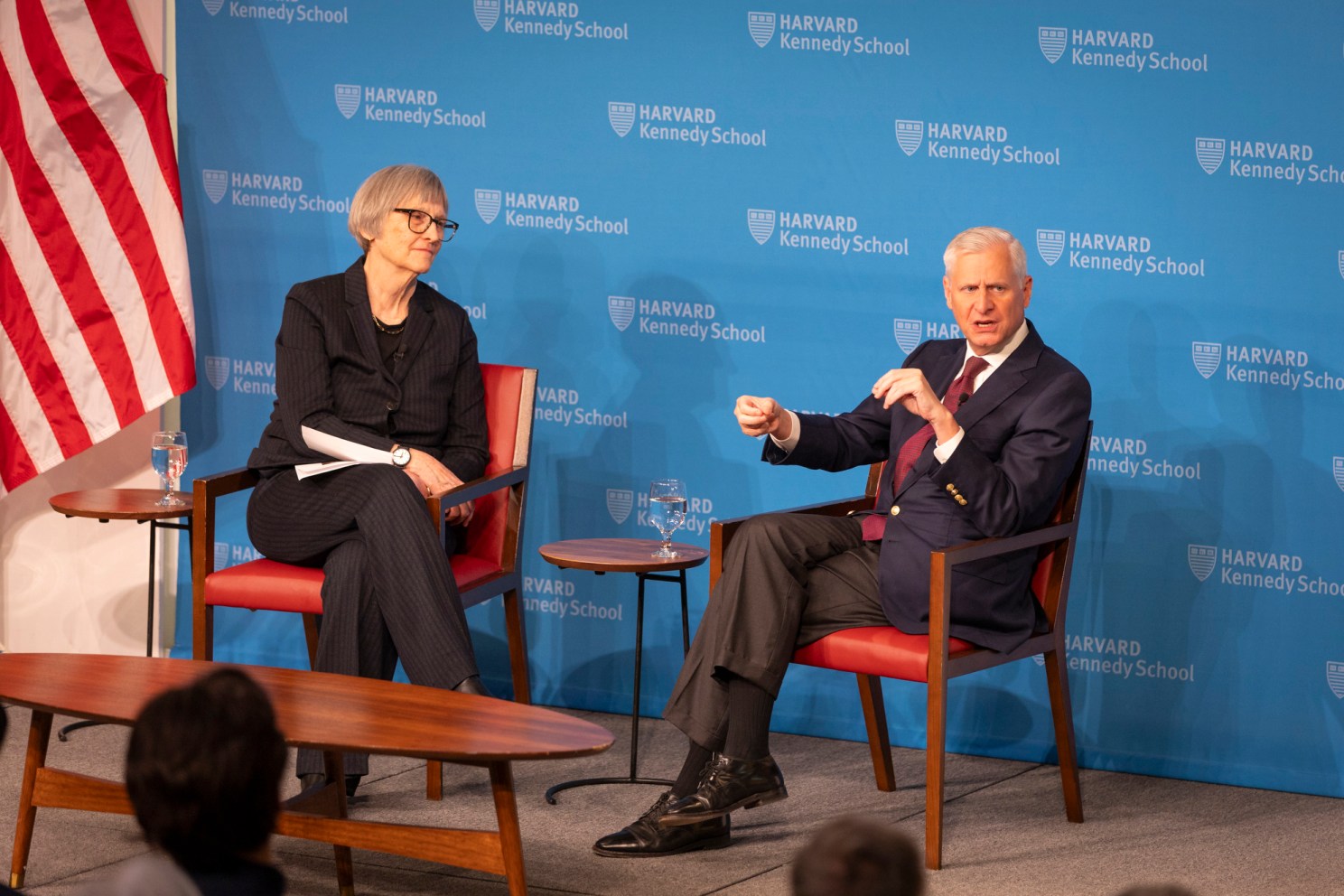Meacham sees a stark choice for America

Drew Faust (left) and historian Jon Meacham.
Niles Singer/Harvard Staff Photographer
Pulitzer-winning historian speaks to country’s past and future in conversation with Faust
The nation faces “a moral crisis” over whether we allow our best or worst impulses to prevail in a battle for the soul of America, historian Jon Meacham told Harvard President Emerita Drew Faust during a conversation about history and U.S. democracy Wednesday at the Kennedy School.
Author of the 2018 book, “The Soul of America: The Battle for Our Better Angels,” Meacham said, “We either will decide that we can live in a country where we defer our immediate gratification in order to enter into a covenant where the rule of law prevails” — or we won’t.
Meacham believes an important political shift has taken place in recent years. In past presidential elections, like Richard Nixon’s narrow loss to John F. Kennedy in 1960, Americans could count on candidates to accept defeat regardless of how close or controversial the contest. That is no longer the case, he said.
“My central worry at the moment is that there’s an autocratic trend in the country that will be deepened and accelerated,” said Meacham, who teaches history at Vanderbilt University and won a Pulitzer Prize in 2009 for his book on Andrew Jackson, “American Lion.”
His fascination with presidents is not to build up Great Man-style mythology, but to reveal their inherent humanity, Meacham said.
“If history has any moral utility — and I think it does — I hope it is not to intimidate people with the grandeur and glory of someone’s life, but to show that flawed and broken people can do great things.”
Meacham served as an informal adviser and speechwriter to President Joseph R. Biden Jr. and was sometimes called Biden’s “muse” for their closely shared views of American democracy. When Faust, a Civil War historian, asked how he was able to go from writing about history to becoming part of that history, Meacham answered with a vivid memory.
“It was the moment I had been waiting for since I was 6 years old,” Meacham said. “It’s the Oval Office. The president of the United States is sitting behind the Resolute Desk, the sunlight streaming in. I can smell FDR’s cigarette smoke; I can see RFK reaching out to the Soviets. And I sit down next to the president’s desk, and the president of the United States asked me a question, and I start talking, and I didn’t make a goddamn bit of sense,” he said. “It was horrible.”
Meacham said that if he were president, he would not hold a serious meeting in the Oval Office because of how the past can overwhelm the present.
“I think it distorts things, and I think it’s really hard for presidents to get honest advice, particularly in that room,” he said.
Asked by a student how the legacy of slavery informs the current political climate, Meacham answered: “I think that we have not dealt with it, and we live in the extraordinarily long shadow not just of Appomattox, but of Reconstruction.”
Referencing Edward Alfred Pollard, the Richmond newspaper editor who coined the term “The Lost Cause” in his 1866 history of the war, Meacham noted, “He says explicitly that ‘Though we have lost the war, we have not lost the fight for the principle, which was the principle of white supremacy.’ And I think we live with that tension now.”




